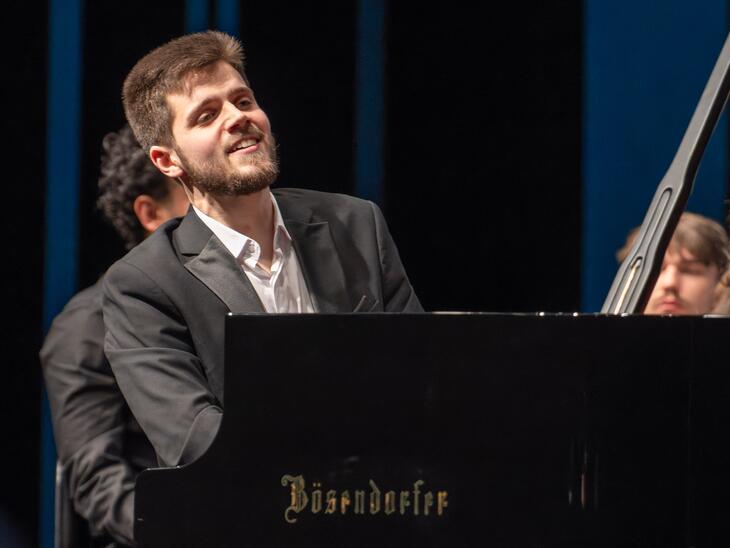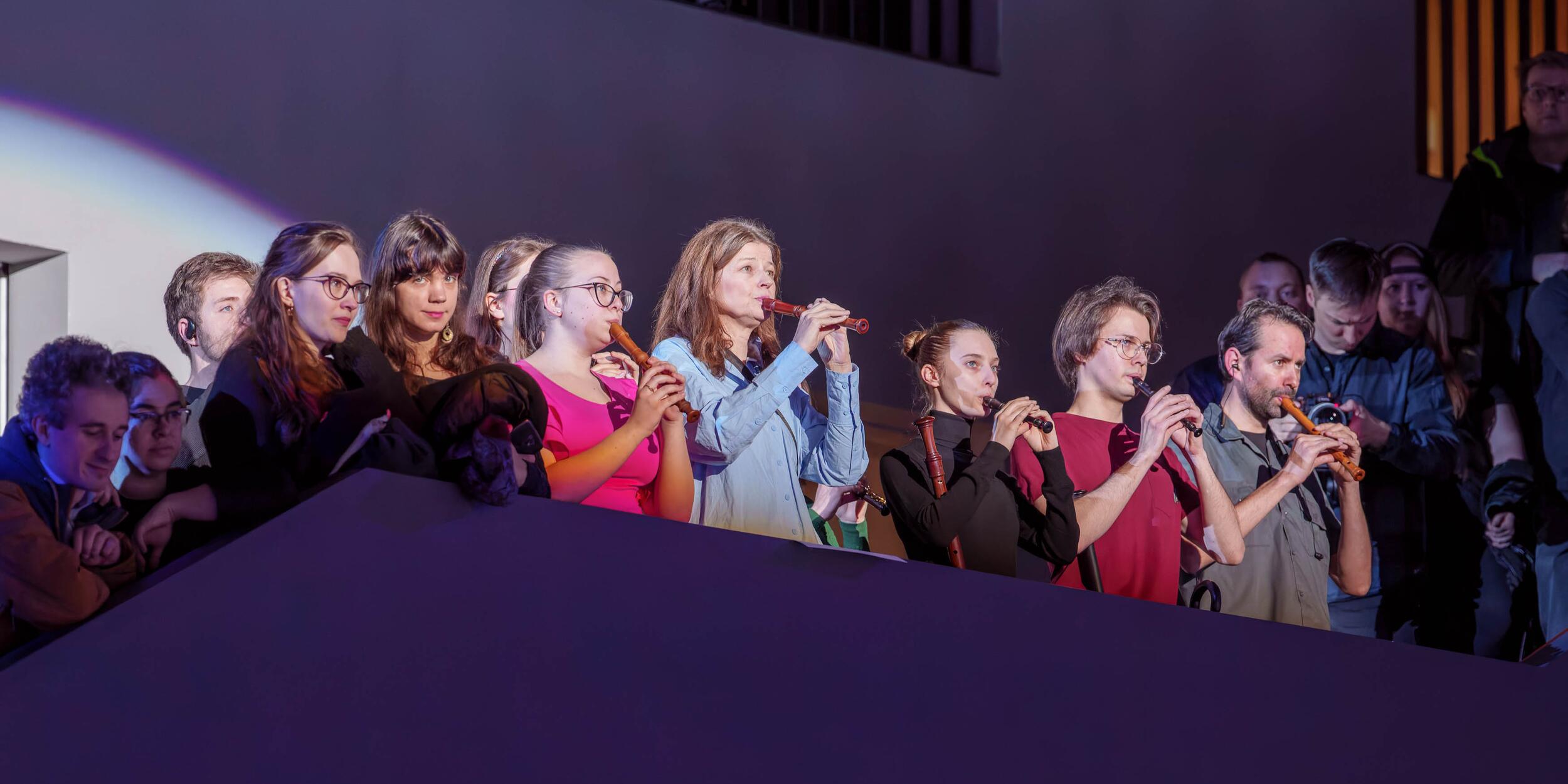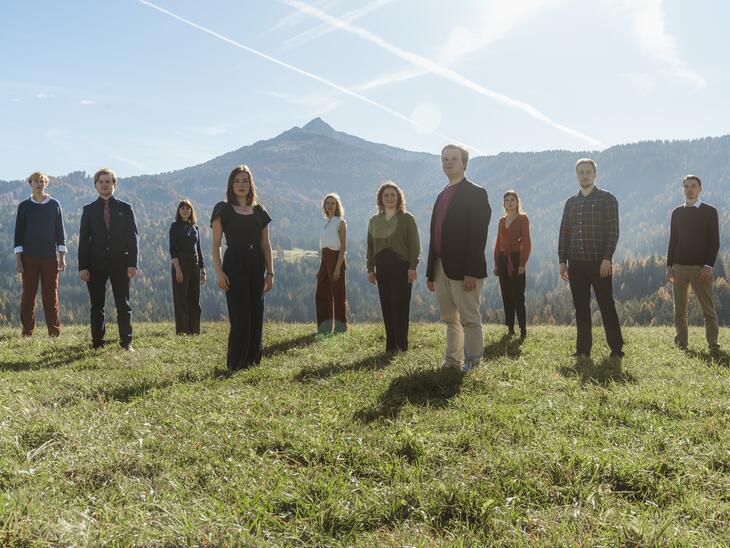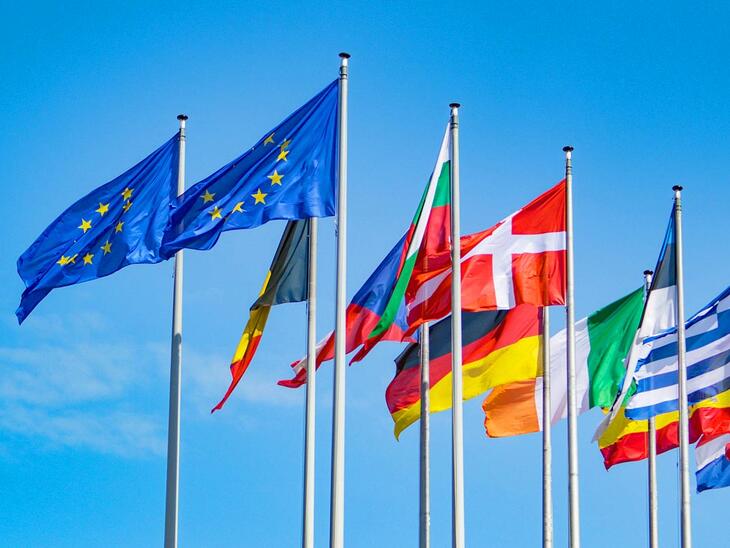Cycles permeate our lives: day and night, seasons, stellar orbits, life cycles. Their recurrence and transformation – the incessant ‘always the same, yet always different’ – have inspired composers for centuries: Telemann with Die Tageszeiten (times of day), Vivaldi with The Seasons, Stockhausen with his Tierkreis (zodiac pieces). With this in mind, the second edition of the ORA – Original Sound Festival of the Mozarteum University Salzburg takes the cycle as this year’s theme: from Baroque cantatas to Classical-Romantic symphonies to contemporary world premieres.
Following its successful inception in March 2024, the festival once again invites audiences to enjoy an intense dialogue between old and new music from 6 to 8 November 2025. "We were able to build inspirational bridges between the sound of original instruments and the classical instruments we are familiar with today – for example, in the context of the cooperation with the Wind Philharmonic and a commissioned work by Vladimir Tarnopolski or the performance of Terry Riley's 'In C'," recalls Dorothee Oberlinger. Under the artistic direction of Dorothee Oberlinger, Vittorio Ghielmi, Florian Birsak and Simone Fontanelli, teachers and students from the Mozarteum University, together with international guests, have conceived a programme that celebrates the encounter between original sound, new music, improvisation and spatial concepts. The first edition in spring 2024 already demonstrated the potential of this new festival format. Over three days, early music, contemporary musical language and improvisation came together in unusual constellations. The concerts combined Bach's masterpieces with world premieres, new instrumental and vocal music with original Baroque sounds. With its premiere, ORA immediately established itself as a festival that builds bridges, be it between centuries, between sound ideals, or between students and renowned guests. The second edition also follows this idea, as Oberlinger explains, "It's about broadening our horizons – we offer studies in Early Music, deal with sources and performance practice from past centuries, and from there we want to create something new with the fascinating sound of original instruments."
This year's festival focuses on cycles: the inevitability of the new day, the seasons, the orbits of the stars. It begins on 6 November with the opening concert ‘Die Tageszeiten’ (The Times of Day) in the Great Hall of the Mozarteum Foundation – which also marks the official start of the annual congress of the Association Européenne des Conservatoires, Académies de Musique et Musikhochschulen (AEC). The programme includes Antonio Vivaldi's flute concerto ‘La Notte’, Georg Philipp Telemann's cantata ‘Der Morgen’, Joseph Haydn's symphony ‘Le Midi’ and excerpts from Johann Sebastian Bach's cantata ‘Bleib bei uns, denn es will Abend werden’ (Stay with us, for evening is coming). A highlight is the world premiere of a commissioned work: László Tihanyi, ‘Clausula No. 14 – The Four Seasons’ (Op. 98, 2025). László Tihanyi is also shaping this year's festival as composer in residence. Born in Budapest in 1956, the composer and conductor studied at the Liszt Academy, where he has been teaching since 1979. He founded the Ensemble Intermodulation and works with leading ensembles for new music worldwide. His works – chamber music, orchestral pieces, operas – have won numerous awards, including the Erkel Prize and the Bartók-Pásztory Award. In his commissioned work, he presents the seasons as a reflection of the four temperaments – spring sanguine, summer choleric, autumn melancholic, winter phlegmatic. Recorders and viols combine with tuned bells, and free passages are interwoven with cyclical structures. Students perform together with Dorothee Oberlinger, Marcello Gatti and Vittorio Ghielmi.
On 7 November, the Carabinieri Hall of the Residenz will also host a musical panorama of the seasons: works by Giovanni Antonio Guido, Maki Ishii, Henry Purcell, Antonio Vivaldi, Christopher Simpson, Tōru Takemitsu and Joseph Bodin de Boismortier span the arc from the Baroque to the present day. Early music in historical performance practice meets contemporary musical languages and improvisational moments, with Florian Birsak (harpsichord), Lisandro Abadie (bass-baritone) and Elisa Citterio (violin).
The festival closes on 8 November with a promenade concert in the new Mozarteum University building at the Kurgarten (UMAK): ‘This year, we are spanning the globe, as it were, and meeting musicians from Korea who are bringing historical instruments with them to the UMAK with Stockhausen's “Tierkreis”,’ says Oberlinger. Four groups – Sirius, Polarstern, Canopus, Arktur – will each perform in three rooms. The programme includes Karl-Heinz Stockhausen's Tierkreis pieces and Georg Philipp Telemann's fantasies for violin, flute and viola da gamba. Actors will guide the audience through the evening before Florian Birsak interprets the 24 preludes and fugues from Bach's ‘Well-Tempered Clavier II’ on the harpsichord and clavichord in subdued lighting from 10 p.m. Seating and reclining areas create a space for contemplative listening – a concentrated conclusion marked by silence and reflection. "For me personally, it has always been important to network, build bridges and learn from each other. Students can learn from such concert and festival concepts how to get involved in dramaturgy and later achieve authenticity and a unique selling point on the freelance market," says Oberlinger. "We want to further establish the festival as a permanent fixture. For us, it is one of the important calling cards of the Department of Early Music and its activities!"
At the ORA Festival, ‘original sound’ is not a museum concept, but rather a starting point for experimentation. Old instruments meet new music, improvisation meets world premieres, baroque spatial concepts meet contemporary performance. ORA is a lively forum, a place for interdisciplinary encounters: original sound becomes music of the future.
(Article published in the Uni-Nachrichten / Salzburger Nachrichten am 4. Oktober 2025)




